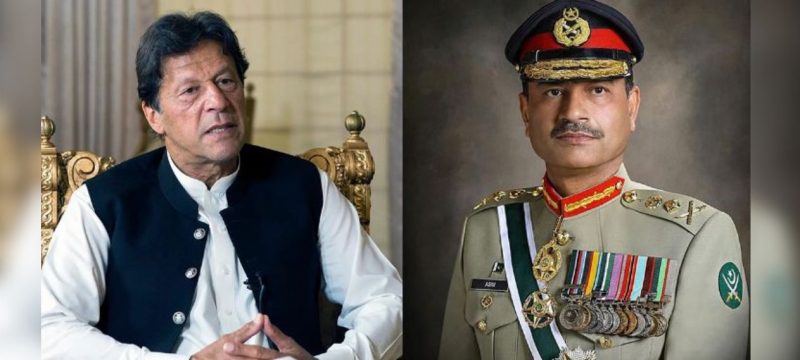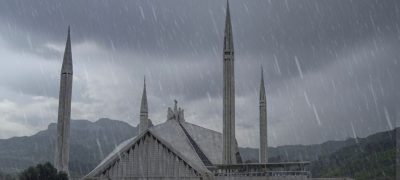Former Prime Minister Imran Khan has intensified his criticism of the military’s role in politics, despite having written two letters to the current Army Chief—contradicting his own stance against engaging with the military establishment.
Khan, who has been imprisoned since August 2023, launched fresh accusations against the military leadership, alleging interference in the country’s political affairs. Speaking to lawyers and the media from Adiala Jail, he claimed that the military has taken control of political matters, particularly highlighting the influence of the Army Chief and the Director General of the Inter-Services Public Relations (DG ISPR).
Read more: Imran Khan Writes Second Open Letter to Army Chief
The PTI chief stated that he had written to the Army Chief in ‘good faith’ for the betterment of the country but asserted that military involvement in governance has reached unprecedented levels. He accused the Army Chief of covertly controlling political affairs, thereby weakening Pakistan’s political institutions.
Furthermore, Khan condemned the government’s actions, accusing it of deliberately obstructing his rally at Minar-e-Pakistan. He claimed that the caretaker government is both fearful and incapable of addressing the nation’s real challenges. He added that the military’s interference has severely eroded public trust, widening the gap between the army and the citizens.
His remarks come amid increasing concerns over the military’s expanding influence in political affairs, with critics accusing the current administration of stifling dissent and undermining democracy. His statements are expected to add to the ongoing political tensions in the country.
In his previous letter to the Army Chief, Khan addressed key issues such as alleged electoral fraud, the impact of the 26th Constitutional Amendment on the judiciary, and terrorism charges against PTI members. He also expressed his support for the military’s efforts against terrorism, acknowledging the sacrifices of soldiers.
Additionally, the PTI founder criticized the Prevention of Electronic Crimes Act (PECA), arguing that it threatens press freedom. He also voiced concerns over Pakistan’s struggling economy, calling for the establishment of a judicial commission and policy reforms to address these pressing issues.









